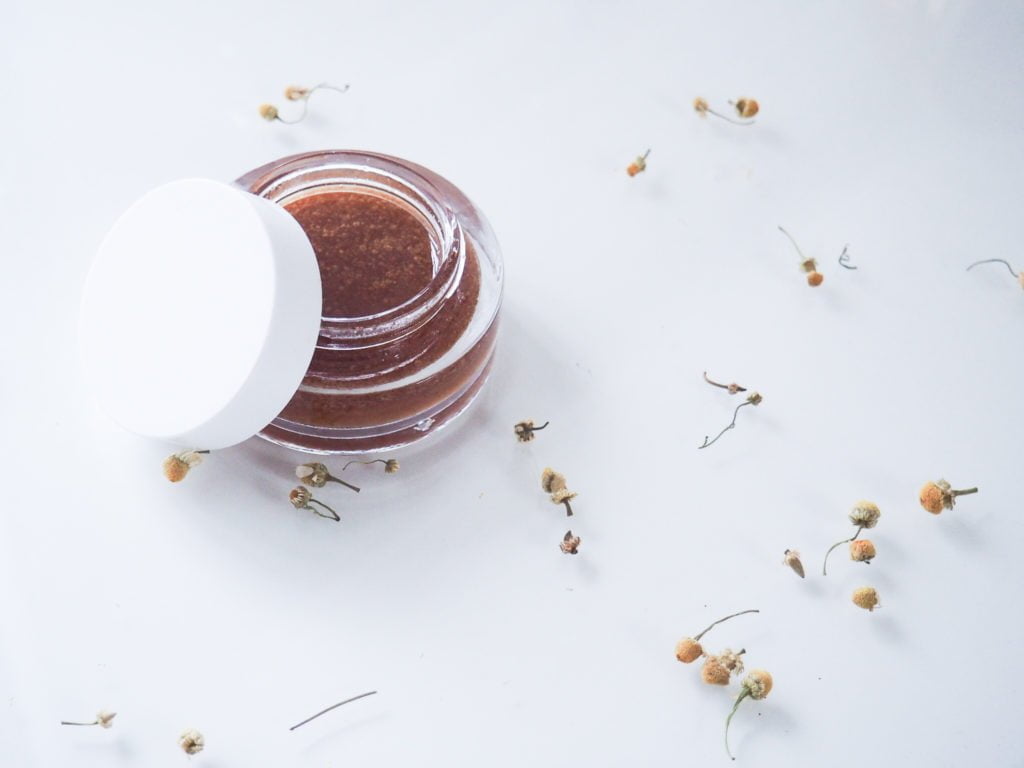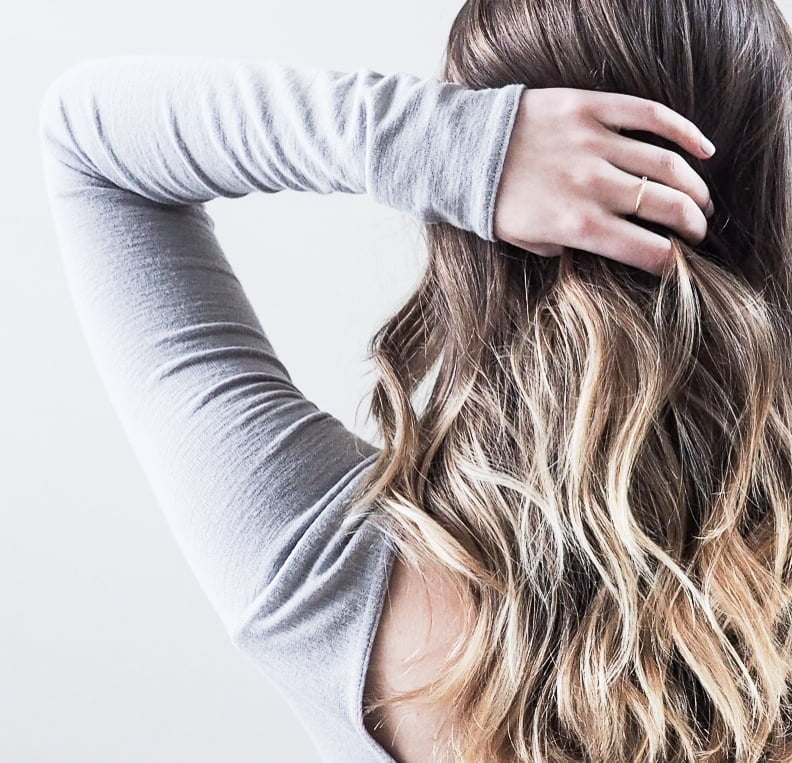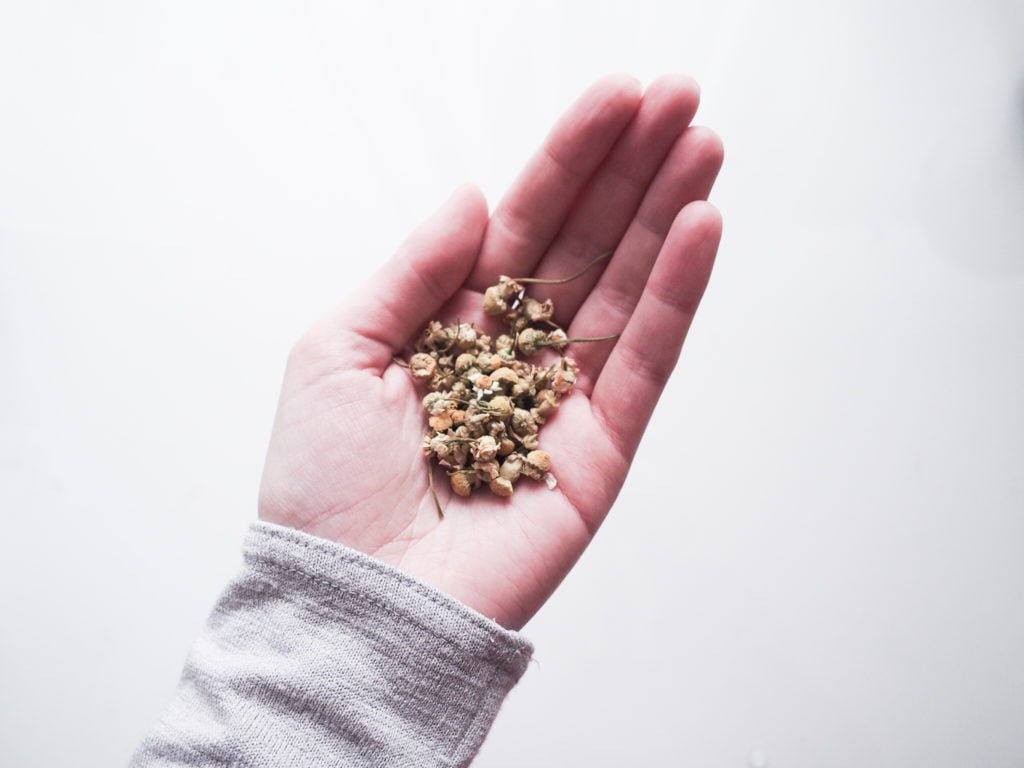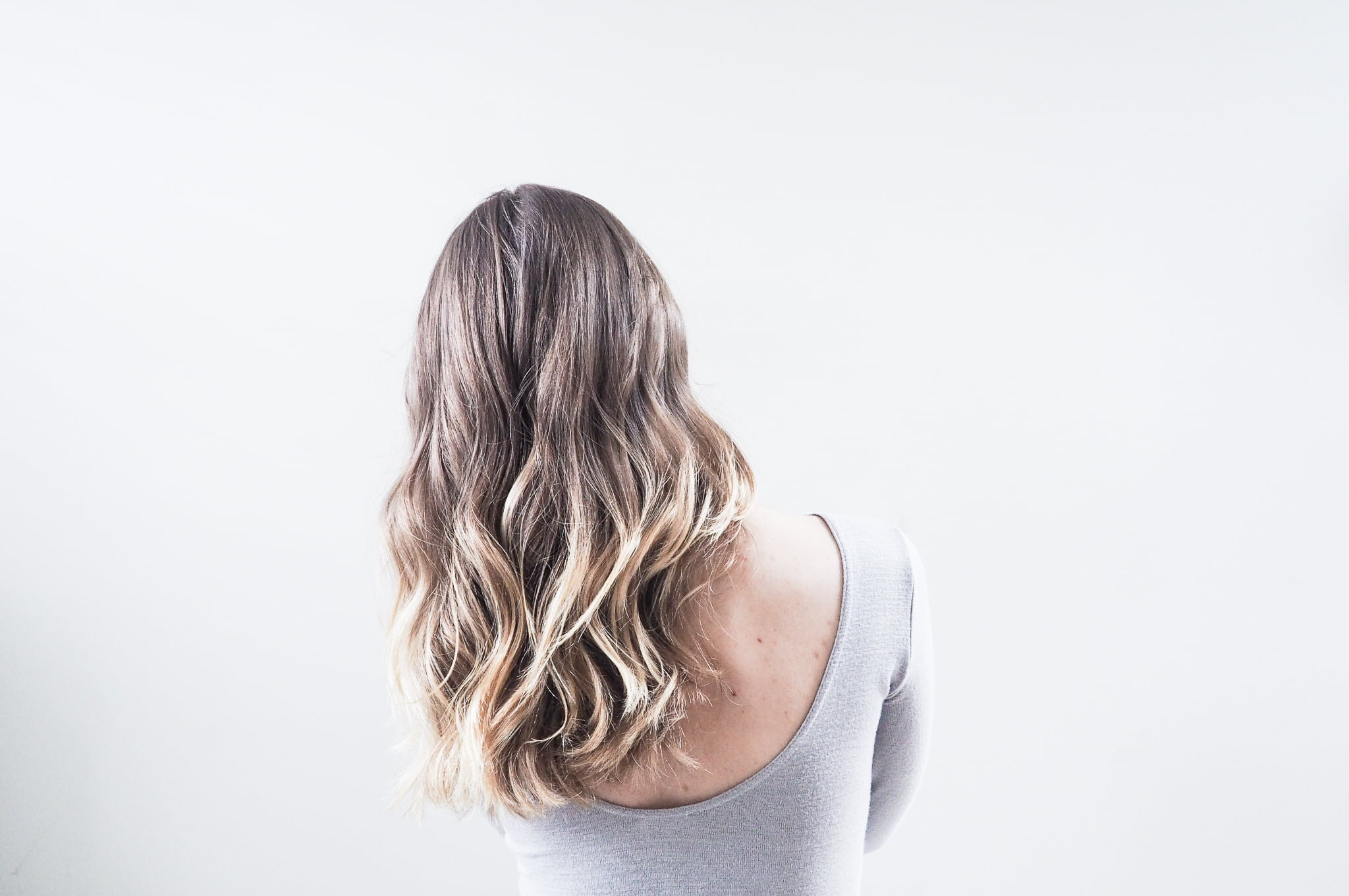You might remember in a past article I shared my favourite DIY recipe for lightening your hair naturally. This is a great recipe for the summer since the lightening effect is intensified when you’re out in the sun, and as a bonus it gives you a beautiful, beachy look. But it can be quite drying, making it less appropriate for the colder months when hair typically needs more hydration.
In winter, I prefer to switch it up and make a more hydrating mask to give my hair some TLC. It includes very similar ingredients, but focuses more on adding moisture and brightening dull hair. This winter hair mask will give your locks a break from the elements and make it shiny and bright!

Ingredients
- 1 Tbsp olive oil
- 1 Tbsp coconut oil
- 1 Tbsp raw honey
- 1 tsp cinnamon (optional)
- 1/4 cup chamomile tea (optional)
- 10-15 drops essential oil of your choice (I like rosemary)
Instructions
To make this hydrating mask, all you really need is three ingredients that you can commonly find in your kitchen: olive oil, coconut oil, and honey. If you want to go for the optional brightening effect, you can add either cinnamon and/or chamomile.
- To go the brightening route, first combine the honey and cinnamon together and let it sit for an hour to ‘develop’.
- If using chamomile, steep 1.5 Tbsp of tea in about 1/4 cup of water for 10 minutes. (You are looking to make more of a strong extract as opposed to an actual cup of tea. This way it will have more of a mask consistency when combined with the remaining ingredients and won’t be too watery.)
- Combine all ingredients together in a bowl or resealable jar, being sure to mix well. You may need to melt the coconut oil first, or if you are using the chamomile tea, it may still be hot enough to melt it when you combine everything.
- Apply to hair from roots to ends, ensuring that they are evenly covered. Pamper yourself a bit by adding a nice scalp massage, especially if your scalp tends to be dry.
- Leave the mask on for at least 30 minutes, and then rinse well. You might need to do two rounds of shampoo to make sure all of the oil has been properly washed away.
- You can make this mask fresh each time you use it or if you make a larger batch, keep it in a resealable jar on your counter or in the fridge to use once every few weeks.
- Enjoy your bright & shiny new hair!


How it works
Olive & coconut oil are very moisturizing, as is honey. Olive oil especially will give your hair a brilliant shine, while coconut oil and honey provide some serious hydration.
When combined with cinnamon, honey also releases hydrogen peroxide to naturally lighten hair. This is why you want to let the mixture sit and ‘develop’ and is also why it’s important to use natural, raw honey in the recipe. Similarly, chamomile has been used traditionally as a lightening agent, especially for blonde hair.
Finally, not only does rosemary essential oil add a wonderful scent, it also invigorates the scalp and encourages hair growth.
If you give this recipe a try, be sure to let me know what you think in the comments below! Until next time,
Emily xx
Pin for later:



Hi how often can this hair mask be done?
I would say no more than once a week! If you’re lightening your hair then maybe less 🙂
There is no doubt that hair care is essential in the winter! I really like your recipe for a winter hair mask… it’s a great way to fix dry, damaged, winter hair.
In case it hasn’t been said before, double these amounts if you have particularly long hair or just a whole lot of it. I knew instantly that a 1/2 cup of material was not going to do it for hip-length, but the cup I made is doing the job.
Incidentally if you’re going for cooler tones in your hair, you can replace the cinnamon with cardamom and maybe replace the chamomile with green tea. Cardamom (particularly green) has more peroxide in it than cinnamon, so the lightening effect is stronger. It also doesn’t appear to cause problems for people who find they are sensitive to cinnamon–however being the third-most costly spice in the world (if you don’t count Mahleb), it can be prohibitively expensive.